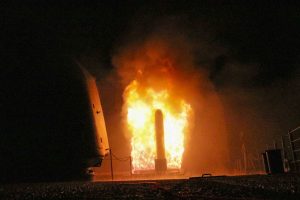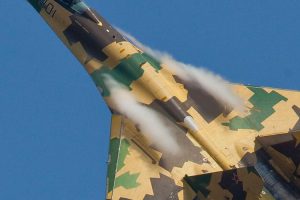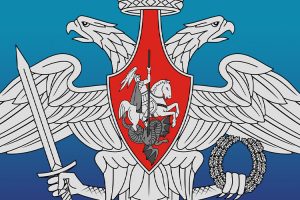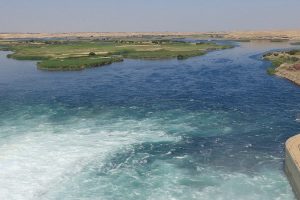Turkish Defense Minister Fikri Işık said on March 16 that finding a diplomatic solution to the situation in northern Syria’s Manbij with the United States and Russia has become a necessity.
A military approach would only be considered if diplomacy failed, he added, in an interview with Turkish media outlet A Haber.
Işık also said Turkey was considering a joint ground operation in Sinjar, Iraq alongside Peshmerga forces controlled by KDP leader Masoud Barzani, President of Iraq’s autonomous Kurdistan Regional Government, to prevent Kurdish militants from maintaining a foothold in the area.
Manbij u-turn?
Işık’s signalling of a change in policy towards solving the Manbij problem diplomatically rather than militarily marks a significant shift in rhetoric from Turkey’s AKP government.
The Turkish government considers the Kurdish-led Democratic Union Party (PYD) and its YPG militia to be the Syrian branch of the outlawed Kurdistan Workers’ Party (PKK). It often conflates the three groups and refers to the “terrorist PYD/PKK”. The US, EU and others have designated the PKK as a terrorist group, but not the YPG or PYD. The YPG makes up the majority of the Syrian Democratic Forces, the US-led coalition’s ‘partner on the ground’ in its fight against Islamic State in Syria.
Ankara has insisted that the YPG should move east of the Euphrates after the SDF liberated Manbij from IS in August 2016. One of the stated aims of Turkey’s Operation Euphrates Shield military action in northern Syria is to enforce this.
After taking Al Bab from IS in February, Euphrates Shield forces began to attack towns controlled by the SDF’s Manbij Military Council.

Russian and Syrian government forces moved into territory west of Manbij on March 8 after a March 2 agreement between the Manbij Military Council and Russia to hand over defence of several towns.
This followed the conspicuous deployment of US Army Rangers to the Manbij area on March 5 on what the coalition calls a “reassure and deter” mission.

Clashes between Operation Euphrates Shield forces and Manbij Military Council-controlled fighters have significantly decreased in both number and intensity since the deployments of Russian and US military forces, indicating that the strategy has worked.
Defence Minister Işık has maintained a more moderate public stance than other members of the Turkish government on the Manbij issue over the last month, but other high-profile officials repeatedly said that Turkey would take Manbij by force.
In a speech broadcast live on TV on March 13, Turkish President Recep Tayyip Erdoğan lauded claims that Syrian rebels backed by Turkish forces had captured several towns near Manbij.
On March 12, Erdogan strongly suggested Turkey would take Manbij by force.
“We won’t allow a terror state, controlled by the PKK and YPG, to be established in northern Syria.… After Jarablus, Dabiq and Al-Bab, now it’s Manbij’s turn,” he said, listing towns in northern Syria taken by Operation Euphrates Shield forces.
On March 10 Erdogan said in Moscow after a meeting with Russian President Vladimir Putin that Turkey was continuing to seek a role in the control of Manbij. He said: “We, as Turkey and Russia, want to cooperate with the coalition forces there.”
On March 9, Turkey’s Foreign Minister Mevlüt Cavuşoğlu said Turkey would strike against “PYD/PKK terrorists” in Manbij if they did not leave.
On March 2, Cavuşoğlu said Turkey would attack the “terrorist PKK/PYD” in Manbij “unless the group withdraws,” adding that Turkey and the United States “must not face off against each other because of Turkey’s fight against other terrorist groups.”
An intervention in Sinjar?
Defense Minister Işık’s remarks about a possible bilateral military operation in Sinjar, Iraq alongside forces controlled by KDP leader Masoud Barzani, President of the autonomous Kurdistan Regional Government echo President Erdogan’s October 2016 suggestion that Turkey will take military action if the PKK does not leave the area. Turkey’s Deputy Prime Minister Veysi Kaynak reiterated in December that the Turkish military could act if the KRG does not force the PKK out of Sinjar.
The KDP-controlled KRG has repeatedly called for the PKK to leave the Sinjar area.
Turkish media outlet ANF, aligned with the Kurdistan Communities Union (KCK) – an umbrella group for Kurdish political parties in Turkey, Iraq, Syria and Iran – claimed on March 16, that the head of Turkey’s National Intelligence Service (MIT) Hakan Fidan visited Iraqi Kurdistan on March 14 and 15. According to ANF’s sources, Fidan met President Masoud Barzani and his nephew Prime Minister Nechirvan Barzani to discuss Turkey-KRG collaboration against the PKK. He then visited Sinjar and the Turkish military base in Bamerne.
Grasswire has not been able to independently verify the claims.

On March 14, Syrian Rojava Peshmerga loyal to Barzani’s KDP opened fire on a Yazidi demonstration in Khanasor, near Sinjar, killing one woman and injuring 15 other people. Tensions had escalated after Peshmerga forces moved into the area on March 2.
Referring to the situation in Sinjar, US State Department acting spokesperson Mark Toner said on March 13 that the PKK “has no place on the battlefield and we consider [it] to be a foreign terrorist organization,” restating the long-held view of Turkey’s most important NATO ally.
Sinjar’s long-standing connection with both the PKK and the YPG, and – more importantly – control of its border with Syria, has made the region a complex geo-political problem, one that seems likely to expand in the near future.






